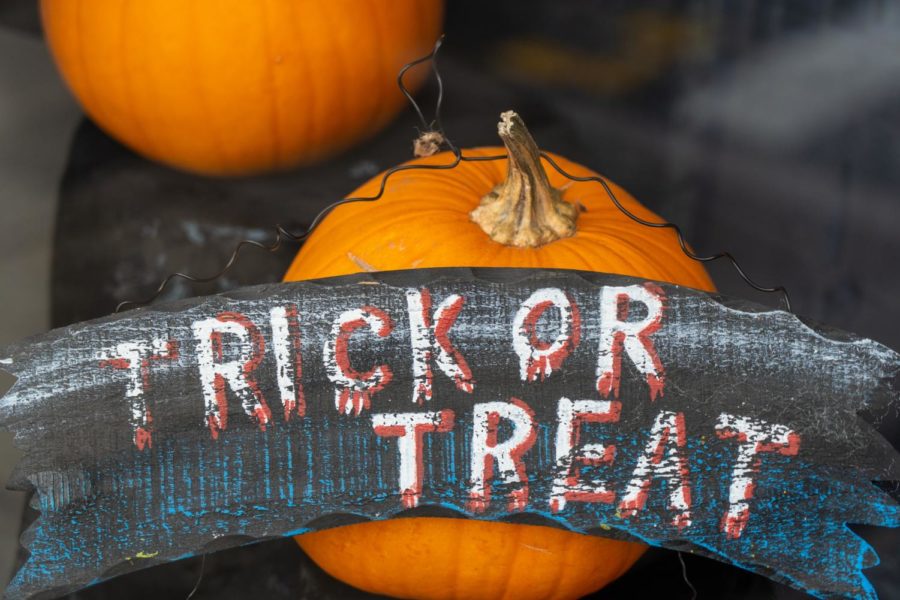How to avoid cultural appropriation this Halloween
While Halloween costumes are a fun way to celebrate the holiday, there are many ways costumes can be offensive and oppressive to different cultures.
October 28, 2021
For some, the tradition of trick-or-treating is as common and annual as seeing people dressed up in offensive costumes that exemplify cultural appropriation.
Whether it be cultures like Saudi Arabia, Mexico, Roma (Gypsies), Native Americans or people of color in general, consumers can find costumes either as parodies or trying to mimic various aspects of these cultures.
According to the website Powwows.com, a site for discussing issues affecting Native Americans, an article titled “No, Halloween Still Doesn’t Exempt Us From Cultural Appropriation,” displays the wide variety of costumes that exemplify cultural appropriation within that culture.
“One of the most common and egregious examples is the ‘Native American costume’ with the person wearing fringe, fake suede, feathers and braids,” the article said. “Another might be of a ‘chief’ or ‘warrior.’ Oftentimes, these costumes are hyper-sexualized and completely offensive.”
An article in USA Today, titled “What to know about Halloween costumes and cultural appropriation” by Jordan Mendoza, defines what the term cultural appropriation means.
“Cultural appropriation is when someone adopts a culture that isn’t their own and does not acknowledge or respect the culture being used for their own benefit, according to the Cambridge Dictionary,” Mendoza said. “Examples can be hair, clothing and impersonating, like using popular African American Vernacular English terms, to fit a persona.”
The article goes on to mention the discussion behind who can dress up as popular characters like Moana and Black Panther. USA Today received a response to this issue and those like it from Mia Moody-Ramirez, director of graduate studies and American studies at Baylor University.
“Moody-Ramirez said a good tool for parents to consider is to think about all the homes their child will knock on for trick-or-treating and if one homeowner would find their costume offensive,” Mendoza said. “She said just wearing the costume of a character should be good, but adding features such as blackface, different hair or putting on tattoos can be insensitive.”
While this advice was given specifically to parents in reference to children, an earlier section of this article mentions how it could also affect college-age students. The article referenced a piece on the website for the University of Michigan titled “Cultural Appropriation.”
“On college campuses this often is brought into focus around Halloween and costume planning,” the piece said. “It’s funny if you dress up as a celebrity or powerful figure, but when you dress up as a culture that may have been oppressed in the past, you are reinforcing power structures in offensive ways or using another culture for your own entertainment.”
Mendoza elaborated on this by saying that a common cause of cultural appropriation is newly found independence for college students combined with the excitement of costumes.
An article from the website HerCampus, “Avoid Cultural Appropriation this Halloween” by Camyll Reyes, offers suggestions on avoiding cultural appropriation this upcoming holiday. Some of these guidelines suggest ideas like avoiding altering skin color, researching your costume and holding friends accountable. The article also discusses ensuring your costume does not normalize oppressing a specific culture.
“If your costume depicts someone imprisoned, homeless, disabled or mentally ill, choose a different costume,” Reyes said. “Making fun of someone else’s suffering is insensitive. If you suspect your costume contributes to the oppression of a group of people, it’s time to go back to the drawing board.”
Overall, the article emphasizes the importance of having a complete understanding of your costume and any history and associations that go along with it.
“Halloween is a holiday that you can enjoy without involving cultural appropriation,” Reyes said. “If you have any doubts about your costume, it might be a good idea to go with your backup plan or put together a new costume altogether.”

















